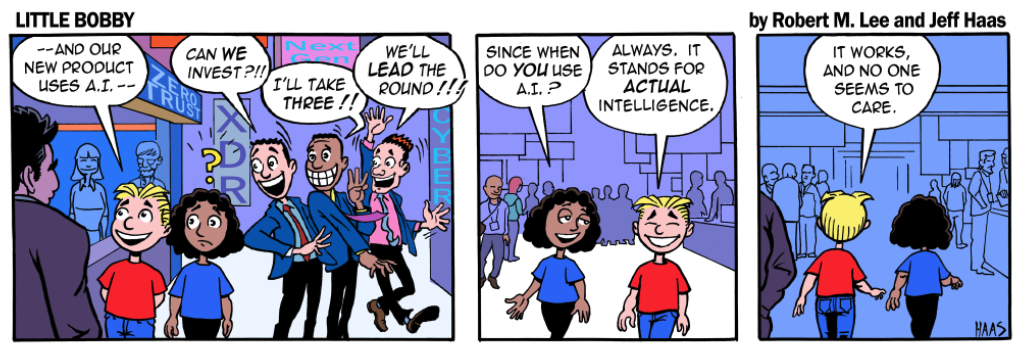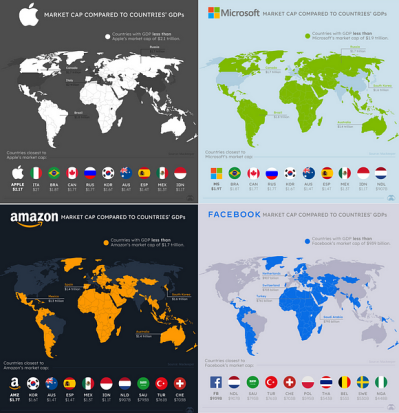Tech Terms
HTML — Hypertext Markup Language (HTML) is the standard language used to create web pages. It’s the most basic building block you’ll need for developing websites. You might remember basic HTML tags from early personal websites like Myspace, where you could customize your page with commands inside <>.
The Test
What’s New: The ongoing ransomware attack by the Russian syndicate known as REvil is testing the Biden administration’s promises to get serious about cybersecurity and to hold Russia accountable.
Why This Matters: We knew this was coming. After Presidents Biden and Putin met in Geneva, the world knew it’d only be a matter of time before Russia-based ransomware groups attacked the U.S. and forced America’s hand. Now they have and we’re all waiting to see what’s next.
Key Points:
REvil is another ransomware group that offers “ransomware as a service,” and is known for exfiltrating large volumes of data from its victims and demanding million dollar payments. You can learn more about these jerks here.
Thousands of businesses have been hit worldwide, including railways, pharmacies, and grocery stores.
The primary target was the U.S.-headquartered Kaseya company, who provides managed IT services for companies too small to have their own IT departments.
Last week, Biden met with cybersecurity advisors and told the press that he “will deliver” a response to Putin soon. Whatever that means.
Of course, all of this comes in the wake of the recent Geneva summit where Biden reportedly explained to Putin that Moscow would face America’s “significant cyber capability” if these types of attacks continue.
When asked by The Dispatch for my take, I offered the following:
“Even if you accept the line from some attackers that they’re just in it for the money and they’re not working on behalf of the Russian government, it is simply a reality that they would not be allowed to operate and to have this level of influence if the Russian government weren’t tacitly or actively allowing them to operate. And this has a political benefit to Moscow. It creates this type of instability, and it shows the West to be weak and vulnerable. That fits the political narrative that Moscow and Putin are trying to inculcate and spread around the world—that the West is hollowing out. They want to prove that the West is increasingly ineffectual in terms of protecting its own interests, and Russia specifically can act with impunity.”
What I’m Thinking:
This can’t be a surprise. Any policy team worth their salt will have anticipated that Putin would test American resolve and that Russian-based ransomware attacks would occur after the U.S. made its points in Geneva. Accordingly, I’m hoping we have a series of “playbooks” — pre-planned actions and strategies — that are now being implemented to show that, we are in fact, serious. These actions should include the total dismantling of REvil’s infrastructure and other harassing activities against its known members. We should also cripple the networks of anyone who has or is using the group’s ransomware-as-a-service offerings. Time for cyber “heads” on cyber “pikes.”
But, we’ll see what happens next. Apparently, Biden feels “optimistic” after phoning Putin and again warning that the U.S. “will take any necessary action to defend its people and its critical infrastructure.” I sincerely hope this isn’t the totality of our response. No doubt this is a tough policy challenge and much of our response is going to occur in digital clandestine and covert zones. But, the White House also has to demonstrate to the American people that they understand this threat and are effectively working against it. That means we need to see some changes in the real world beyond “optimistic” assurances.
I still think this is terrorism. The United States cannot deny attackers this ability outright — our threat surface is too large and the tools themselves are too widely available — but, we can significantly raise the costs of these attacks. The U.S. should designate these attacks as terrorism. This would provide important authorities for our military and intelligence members to target and dismantle ransomware networks.
Pentagon Scrubs JEDI
What’s New: The DoD is canceling its $10 billion JEDI contract and is starting all over.
Why This Matters: JEDI was intended to modernize the Pentagon’s cloud computing architecture and was originally awarded to Microsoft. Amazon and Oracle, however, protested this decision and have now convinced the DoD to issue a do-over.
Key Points:
The new contract will be called the Joint Warfighter Cloud Capability (JWCC) and will reportedly “seek technology from both Amazon and Microsoft” and require enhancements to “military decision making with artificial intelligence.”
The original JEDI contract was released in 2018 and also included AI support; however, the Pentagon’s acting CIO, John Sherman, issued a statement saying the military’s demand for algorithm capabilities has grown significantly.
“Our landscape has advanced, and a new way ahead is warranted to achieve dominance in both traditional and nontraditional war-fighting domains,” Sherman said.
What I’m Thinking:
Fine. But get on with it. Our defense acquisition process is so screwed up that these types of fights are never surprising — especially when $10 billion is on the line. Maybe Amazon and Oracle had a point and there were legitimate concerns about the original award to Microsoft. Or, maybe they were a bunch of sore losers who knew how to use a broken system to get a better outcome. Whatever the case, our military cannot afford to delay these critical capabilities any longer. Moving to the cloud was SO early 2000s! We need to get our house in order now if we want to credibly engage the growing number of very real military and national security challenges that are stacking up. Oh, and yeah, AI is gonna be important.
Harvard-MIT develop 256 Qubit Simulator
What’s New: Physicists at the Harvard-MIT Center for Ultra-cold Atoms have developed a programmable quantum simulator capable of operating with 256 quantum bits (or “qubits), according to the Harvard Gazette.
Why This Matters: This simulator is the largest of its kind and is a significant step forward in building large-scale quantum computers.
Key Points:
The project builds on a platform developed in 2017, which was able to leverage 51 qubits.
Now, with 256 qubits at their disposal, the machine can simulate a number of quantum states that exceeds the number of atoms in our solar system (🤯).
The older system allowed ultra-cold rubidium atoms to be captured and arranged using “optical tweezers” — one-dimensional arrays of individually focused laser beams.
The new system allows these atoms to be assembled in two-dimensional arrays to create programmable shapes like squares, honeycombs, or triangular lattices.
These shapes allow engineers to create completely new interactions between the qubits, exponentially growing the machine’s computational capacity.
“This moves the field into a new domain where no one has ever been to thus far,” said Mikhail Lukin, the George Vasmer Leverett Professor of Physics, co-director of the Harvard Quantum Initiative, and one of the senior authors of the study published today in the journal Nature. “We are entering a completely new part of the quantum world.”
What I’m Thinking: You don’t have to understand all of the details of this development (I certainly do not) to appreciate the larger point: quantum computer science is experiencing a renaissance of research and discovery. It is very possible that one of the most important technological innovations in human history could be realized in our lifetime. That’s pretty cool (pun intended).
Let’s Get Visual (click for more details)

Nerd Humor

Quick Clicks
That’s it for this Monday Brief. Thanks for reading, and if you think someone else would like this newsletter, please share it with your friends and followers. Have a great week!






Please note that we at The Dispatch hold ourselves, our work, and our commenters to a higher standard than other places on the internet. We welcome comments that foster genuine debate or discussion—including comments critical of us or our work—but responses that include ad hominem attacks on fellow Dispatch members or are intended to stoke fear and anger may be moderated.
With your membership, you only have the ability to comment on The Morning Dispatch articles. Consider upgrading to join the conversation everywhere.